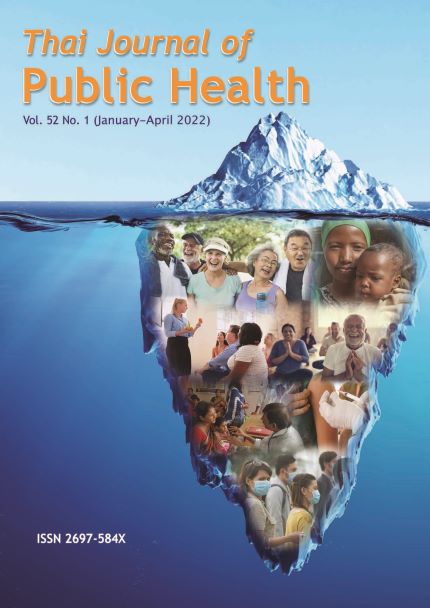Factors influencing husband’s involvement during antenatal care in Lalitpur district of Nepal
Keywords:
Antenatal care (ANC), Husband’s involvement, Lalitpur Nepal, PregnancyAbstract
This research aimed to identify the proportion of husbands involved during antenatal care (ANC) and factors influencing husband’s involvement during ANC in Lalitpur district of Nepal. A cross-sectional study was carried out amongst married men (n=284), who were aged 20 years and above and whose wives had experienced a live birth within one year before data collection. Univariate chi-square test and multiple logistic regression were used to identify associations and predictors respectively. The results indicated that 87.7% of the respondents were highly involved during ANC. After adjusting for confounding factors, the final model revealed that husband’s education (primary and secondary) (AOR: 12.592, 95% CI: 1.578-100.509 and AOR: 14.261, 95% CI: 1.771-114.839), wife’s education (AOR: 7.648, 95% CI: 1.191-49.122) and distance to the nearest ANC clinic (AOR: 7.643, 95% CI: 1.997-29.245) were significant predictors. Perceived low support from the female community health volunteers, and male-unfriendly ANC facilities and policies, are challenges with regards to active male involvement during ANC. Hence, providing education to individuals, strengthening the role of female community health volunteers, and establishing ANC facilities and related policies which accommodate males, could improve male involvement in ANC.
References
Kariuki KF, Seruwagi GK. Determinants of male partner involvement in antenatal care in Wakiso District, Uganda. J Adv Med Med Res 2016; 1–15.
World Health Organization. WHO recommendations on antenatal care for a positive pregnancy experience. Available from: https://www.who.int/publications/i/item/9789241549912, accessed 9 November, 2021.
UNICEF. Antenatal care - UNICEF DATA. Available from: https://data.unicef.org/topic/maternal-health/antenatal-care/, accessed 3 November, 2021.
Ministry of Health and Population, Department of Health Services, Nepal. Annual report of Department of Health Services 2074/75 (2017/2018) p. 86. Available from: https://phpnepal.org.np/publication/current-issue/recently-released/238-annual-report-of-department-of-health-services-2074-75-2017-2018, accessed 3 November, 2021.
National Planning Commission, Government of Nepal. Nepal’s Sustainable Development Goals, Baseline Report, June 2017. Available from: https://www.npc.gov.np/images/category/SDGs_Baseline_Report_final_29_June-1(1).pdf, accessed 4 November, 2021.
Government of Nepal, Ministry of Health, Kathmandu. Progress of the Health Sector, 2018. Available from: https://mohp.gov.np/downloads/JAR%202016_17%20Feb%202018.pdf, accessed 4 November, 2021.
Health Office, Lalitpur. Annual Progress Report 2075/078]. Health Office, Lalitpur; 2019.
Sharma S, Kc B, Khatri A. Factors influencing male participation in reproductive health: a qualitative study. J Multidiscip Healthc 2018; 11: 601–8.
Wai KM, Shibanuma A, Oo NN, Fillman TJ, Saw YM, Jimba M. Are husbands involving in their spouses’ utilization of maternal care services? A cross-sectional study in Yangon, Myanmar. PloS One 2015; 10(12): e0144135.
Rahman M, Islam MT, Mostofa MG, Reza MS. Men’s role in women’s antenatal health status: Evidence from rural Rajshahi, Bangladesh. Asia Pac J Public Health 2015; 27(2): NP1182-92.
Sternberg P, Hubley J. Evaluating men’s involvement as a strategy in sexual and reproductive health promotion. Health Promot Int 2004; 19(3): 389–96.
Lewis S, Lee A, Simkhada P. The role of husbands in maternal health and safe childbirth in rural Nepal: A qualitative study. BMC Pregnancy Childbirth 2015; 15: 162.
Mullany BC, Lakhey B, Shrestha D, Hindin MJ, Becker S. Impact of husbands’ participation in antenatal health education services on maternal health knowledge. JNMA J Nepal Med Assoc 2009; 48(173): 28–34.
Mullany BC, Becker S, Hindin MJ. The impact of including husbands in antenatal health education services on maternal health practices in urban Nepal: Results from a randomized controlled trial. Health Educ Res 2007; 22(2): 166–76.
Vermeulen E, Solnes Miltenburg A, Barras J, Maselle N, van Elteren M, van Roosmalen J. Opportunities for male involvement during pregnancy in Magu district, rural Tanzania. BMC Pregnancy Childbirth 2016; 16: 66.
Sharma V, Leight J, Giroux N, Abdul-Aziz F, Nyqvist MB. That’s a woman’s problem: A qualitative analysis to understand male involvement in maternal and newborn health in Jigawa state, northern Nigeria. Reprod Health 2019; 16(1): 143.
Kumbeni MT, Ziba FA, Alem JN, Nborah SA. Factors influencing male involvement in antenatal care in the Kassena Nankana Municipal in the Upper East Region, Ghana. Eur Sci J ESJ 2019; 15(21): 1–1.
Israel GD. Determining sample size. Available from: https://scholar.google.com/scholar?cluster=16091718807576642162&hl=en&as_sdt=0,5#d=gs_qabs&u=%23p%3DcgIUd_9EUd8J, accessed 4 November, 2021.
Alemi S, Nakamura K, Rahman M, Seino K. Male participation in antenatal care and its influence on their pregnant partners’ reproductive health care utilization: Insight from the 2015 Afghanistan Demographic and Health Survey. J Biosoc Sci 2021; 53(3): 436–58.
Matseke MG, Ruiter RAC, Barylski N, Rodriguez VJ, Jones DL, Weiss SM, et al. A qualitative exploration of the meaning and understanding of male partner involvement in pregnancy-related care among men in rural South Africa. J Soc Behav Health Sci 2017; 11: https://scholarworks.waldenu.edu/cgi/viewcontent.cgi?article=1269 & amp;context=jsbhs.
Sinha KC. Male involvement and utilization of maternal health services in India. Int J Sci Res Publ 2016; 4(11): 1-3.
Thapa DK, Niehof A. Women’s autonomy and husbands’ involvement in maternal health care in Nepal. Soc Sci Med 2013; 93: 1–10.
Craymah JP, Oppong RK, Tuoyire DA. Male involvement in maternal health care at Anomabo, Central Region, Ghana. Int J Reprod Med 2017; 2017: 2929013.
Kurniati A, Chen C-M, Efendi F, Elizabeth Ku L-J, Berliana SM. Suami SIAGA: Male engagement in maternal health in Indonesia. Health Policy Plan 2017; 32(8): 1203–11.
Mkandawire E, Hendriks SL. A qualitative analysis of men’s involvement in maternal and child health as a policy intervention in rural Central Malawi. BMC Pregnancy Childbirth 2018; 18(1): 37.
August F, Pembe AB, Mpembeni R, Axemo P, Darj E. Community health workers can improve male involvement in maternal health: Evidence from rural Tanzania. Glob Health Action 2016; 9: 30064.
Ongolly FK, Bukachi SA. Barriers to men’s involvement in antenatal and postnatal care in Butula, western Kenya. Afr J Prim Health Care Fam Med 2019; 11(1): e1–7.
Davis J, Vyankandondera J, Luchters S, Simon D, Holmes W. Male involvement in reproductive, maternal and child health: A qualitative study of policymaker and practitioner perspectives in the Pacific. Reprod Health 2016; 13(1): 81.
Downloads
Published
Issue
Section
License

This work is licensed under a Creative Commons Attribution-NonCommercial-NoDerivatives 4.0 International License.
Creative Commons License CC-BY-ND


